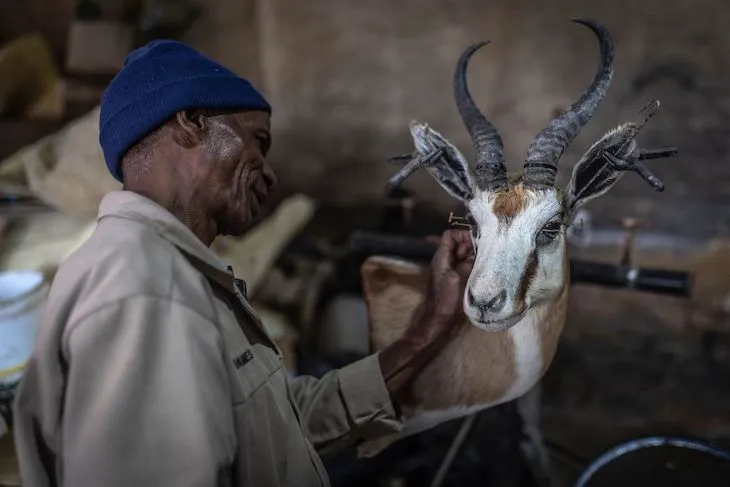British rule over South Africa ended in 1910, but now parliament is busy with legislation that could have a devastating effect on its old colony. A landmark law to ban trophy hunting imports is making its way through the Lords. The Hunting Trophies Bill would prevent tourists importing animal skins, severed heads and carcasses of certain animals to the UK after shoots abroad. But the planned law has holes wide enough for a hippo to walk through. The crackdown may be well intended but it also betrays a lack of understanding about South Africa – and the trade many people, not least farmers, rely upon to survive.
In South Africa, many farmers keep giraffe, impala, wildebeest, kudu and nyala. These animals aren’t corralled like cattle: they live on enormous game ranches which are typically tens of thousands of acres in size. Some of these farms take hours to drive around. The creatures who live in these places are wild, as they have always been, but they are kept in by a fence. Many lead happy lives and are kept safe. The birds, snakes, insects and plants get a free ride. But, as the late Kenyan conservationist, Richard Leakey, put it, ‘The wilderness has to pay its way.’
A number of wild species are ‘farmed’ commercially in South Africa. When these animals are killed, nothing goes to waste: meat to the butcher, intestines for pet food, skins for tanning, horns and feet as ornaments. Wildlife, including once vulnerable species like sable antelope and even crocodiles, are safe from extinction while they have value. Game meat is sold in supermarkets next to beef, pork and chicken.
Souvenir shops are packed with leather from zebra, giraffe or buffalo, kudu-horn lamps, bottle-openers with warthog-tooth handles, all from a sustainable source. Vast numbers of ‘trophies’ are brought back from holiday, mostly purchased at the airport or on safari – products of an industry that gives farmers ownership of animals on their land and a reason to protect their stock. A big ‘boss’, as the buffalo’s front end is known, is what tourists want to photograph and some seek to hang on the wall. No trip to Jo’burg (or Nairobi) is complete without a visit to the Carnivore Restaurant, where you can dine on ostrich, crocodile and buffalo.
But now this industry – which sustains farmers and the game ranches on which these animals live – is under attack. The law is aimed at hunters, who will be barred from bringing back just about anything from their bloody bouts in the bush. And there’s the problem: the wording of the bill is very specific and only covers goods obtained by ‘hunting’. But how are UK customs officers meant to tell whether an animal was hunted, farmed or died of natural causes? Many tourists will simply decide not to take the risk of buying a souvenir and worry about having it confiscated. The result will be that many of these shops selling wildlife products will be forced to shut. Animal activists will celebrate. But this could well backfire: farmers may well think twice about keeping such animals on their ranches. It will deal a major blow to conservation.
Game ranching has helped prevent vast swathes of Southern Africa from being cleared for agriculture. But if these ranches lose a valuable source of revenue, things could change quickly: wildlife may have to make way for cattle, sheep and goats. The land will be ploughed up, with no space for game. Wildlife would no longer be able to pay its way. It would be seen as just taking up land that could be put to better use
In a perfect world, we’d have space for animals to live undisturbed while people (and some of their pets) ate lab-grown meat and vegetables that materialised from nowhere rather than displacing the plants already there. Instead, millions are hungry, space is tight and wild animals need huge areas of land for the ecosystems that sustain them. Someone has to foot the bill – and horns, skins, hooves and meat from wild animals are part of the answer when they don’t come from species under threat. This is an industry that needs to be championed if we’re serious about conservation.
Source: The Spectator






